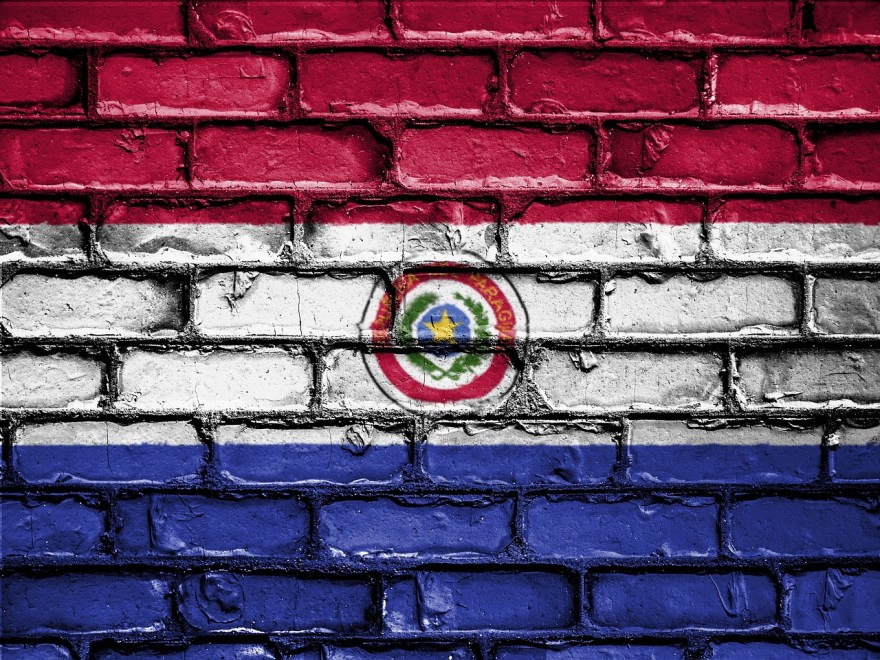Member of Paraguay ‘s parliament Carlos Rejala fooled the world with his laser eyes. His supposed “Bitcoin Law” proposal doesn’t even mention Bitcoin. Rejala heard about El Salvador’s news and attached himself to it trying to steal its thunder. He then deployed a Twitter marketing campaign with big promises and ended up disappointing the whole world.
Related Reading | Domino Effect: Which Countries Will Adopt Bitcoin Next?
The presented bill refers to “crypto assets” or “virutal assets.” Its main objective is to get people to register them and the government to heavily regulate them. The first half contains legal definitions for several terms and technologies, which is useful. The other half consists of threats and possible punishments for whoever refuses to comply with the law. It also makes the point that Paraguay should use its excess energy to mine cryptocurrencies. And, of course, tries to regulate miners somehow.
Another character in this play is Senator Fernando Silva Facetti, who reportedly was working on a proposal similar to Rejala’s. They decide to join forces, which gave the bill a boost and better chances to pass. The bill’s announcement, “Paraguay´s crypto friendly bill’s proposal,” arrived via Silva Facetti’s Twitter account.
Welcome to the presentation of Paraguay´s crypto friendly bill’s proposal, this will allow us to safeguard and optimize our renewable energy.
Bienvenidos a la presentación del proyecto de ley crypto amistosa de Py, nos permite salvaguardar y optimizar nuestra energía renovable pic.twitter.com/9vShh8z3Cw
— FernandoSilvaFacetti (@FSilvaFacetti) July 14, 2021
They promise to, “Protects the paraguayan consumer, by promoting best practices for handling, trade or custody of Digital Assets.” And claim it, “Allows investors to have legal, financial and fiscal security on coming to invest in crypto mining in Paraguay.” And they speculate that “After this bill passes Py will position itself in this competitive industry, and plans to lead in sustainable Bitcoin Mining.”
Can this bill do all that?
What Does Regala Say Crypto Regulation Bill?
The Bitcoin community is hurt. Regala used their iconography, rode their wave, and got massive support from them. In the end, it wasn’t a Bitcoin Law at all. Could it be that Regala doesn’t know the difference between Bitcoin and altcoins? Or that he wasn’t informed on the meaning of the laser eyes? Or did he take advantage of the situation and harnessed all that goodwill knowing full well he wasn’t going to deliver?
While presenting the project, Regala said:
“Today we proudly present this project that will tremendously benefit our population and incalculably the economic, financial, and fiscal part of Paraguay. Taking into account the consumption and use of our renewable energy, mainly from our Itaipú and Yaciretá hydroelectric plants. The country has a huge surplus. For this, we are bringing a solution to the Paraguayan state.”
What Are People Saying About Paraguay ’s Crypto Regulation Bill?
Days ago, “Paraguayan architect and tech enthusiast Juan Pessolani” leaked a draft of the bill to Decrypt media. Besides accusing the lawmakers of stealing 90% of the text from previous proposals in Argentina and Colombia, he said:
“The draft Bitcoin Law in Paraguay does not encourage innovation, does not establish incentives and does not generate economic development opportunities for society,” he said. “On the contrary, it creates obstacles and disadvantages for some and benefits for others.”
Decrypt also quotes “open-source software and cryptocurrency activist Luis Benitez,” who called the proposed bill, “one of the most regrettable documents I saw drafted on technology issues in the last 10 years.” Ouch.
BTC price chart on Bittrex | Source: BTC/USD on TradingView.com
Was A Bitcoin Law Even A Possibility In Paraguay?
Last week, we at Bitcoinist explored this idea. We quoted Regala telling Reuters:
“It is a bill of digital assets and it differs from that of El Salvador because they are taking it as legal currency and in Paraguay it will be impossible to do something like that.”
And quoted the three founders of the Arapy Netwok. In a panel, these Paraguayan entrepreneurs:
… paint the picture of a Paraguay in which the Central Bank regularly warns the population about the risk cryptocurrencies pose. At the same time, the government started financing blockchain projects. So, an outright ban also seems to be out of the question. The other defining factor is informal trade. Those who earn their living that way don’t have access to banking services. That, “is a giant adoption niche for cryptocurrencies and blockchain.”
Related Reading | How Laser Eyes Could Have Bitcoin Investors Seeing Red
So, we knew that Bitcoin as legal tender was out of the question. And that the country faced several institutional obstacles and presented certain promising characteristics at the same time. It was obvious Paraguay wasn’t going to be a second El Salvador just yet, but nobody was expecting such a disappointing and clueless project. The bill misses the point entirely.
Featured Image by David Peterson from Pixabay - Charts By TradingView
